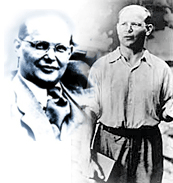Bonhoeffer and Arendt at One Hundred
DOI:
https://doi.org/10.6017/scjr.v2i1.1404Keywords:
Bonhoeffer, Arendt, Holocaust, Spirituality, forgiveness, Jesus, love of world, natality, sinfulness, worldlinessAbstract
This article compares Arendt and Bonhoeffer on the occasion of the 100th anniversary of their births. The paper presents an unusual depiction of Arendt's work, namely, its religious dimension and interests. The thought of the two intersects in three general areas. First, both embrace a fundamental worldliness that affirms the worth of life in the world and the faith that responds to it. Secondly, both recognize history as a territory of sin and evil and both claim the importance of acknowledging such sin and evil in a life of worldly action. Indeed, such recognition may be the key to successful political activism today. Thirdly, both thinkers develop precise, personal understandings of Jesus as a worldly presence. Indeed, an effective political struggle, especially in a society like the United States, may be unable to avoid delineating an image of and attitude to Jesus.Downloads
Published
How to Cite
Issue
Section
License
Copyright (c) 2015 Studies in Christian-Jewish Relations

This work is licensed under a Creative Commons Attribution 4.0 International License.
Please navigate to the Copyright Notice page for more information.

